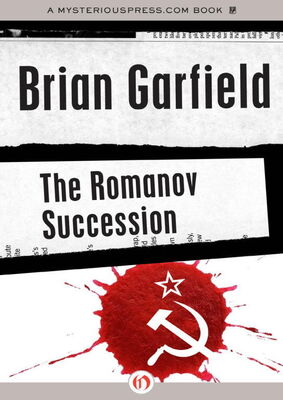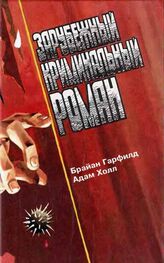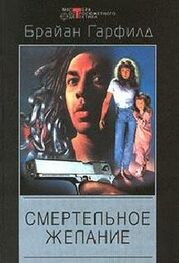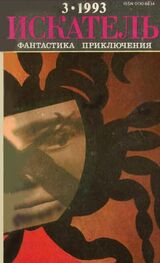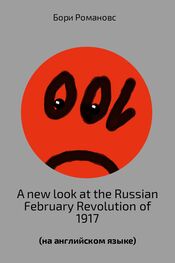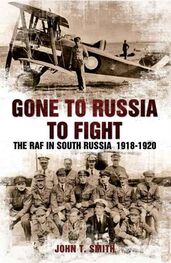The amber light went out; the green flashed. Solov tapped Alex’s shoulder and he jumped.
He was falling at 125 miles an hour and the wind buffeted his ears with a tremendous noise. The pilot chute popped open above him and he braced for the big jerk when the main chute came out. The harness slammed him around for a bit and then he was floating down toward the drop zone, hanging from the chute, thinking about those live high-tension wires forty yards beyond the drop zone: land in those and you could fry. But there wasn’t much wind; the chute was easy to steer by hauling down on this shroud line or that and he hit the DZ dead center, pitching over on his shoulder in the compacted snow. The rest of them were pouring down in a steady stream as if they’d been spilled carefully out of a pitcher; the precision of it was a pleasure to watch.
He had the chute gathered into a bundle before the last man touched down. They gathered without talk—it was a forest clearing eighty yards in diameter with an unoccupied summer dacha somewhere out of sight in the woods to the north. The routine had been drilled into them and they didn’t need spoken orders. When the silk had been folded they carried their parachutes into the woods and left them there weighted down with broken branches and stones; they inspected their combat equipment and moved out along the dacha’s, driveway, marching out to the main road in neat military formation—a Red Army infantry platoon moving under orders.
The cold was characteristically and uniquely Russian: it cut through any kind of clothing and attacked bone-deep.
They came out to the road and executed a column-right maneuver. It was a fourteen-mile march from here to the track; they’d had to drop that far away to avoid being seen in the air by any of the sentry positions in the area. The road had been cleared within the past twenty-four hours and there were only thin patches of snow that had drifted across the gravel surface; it made for easy walking and they would be ahead of time at the objective but that was fine. They had six hours to get there; they would make it in half that.
Two miles along the road Solov took his eight men down a fork to the left and Alex gave the remainder of the company a five-minute breather until Solov’s unit was out of sight. Then he led Sergei and his fifteen-man commando due west along the high road.
After an hour they halted for another ten-minute breather. There was no hurry now and he didn’t want the men half exhausted; they’d had to go without most of a night’s sleep in any case. They sat down at the side of the road and in the silence that ensued they could hear the plop of snow falling off the trees in the deep forest that lined both sides of the road; and when Alex listened with more care he heard the very distant pound of artillery—a big-gun duel talking place somewhere many miles to the southwest, perhaps on the far side of Moscow. It brought back all the old campaigns at once and the knowledge he’d learned in the field—how to listen to the guns, how to tell which were outgoing and which incoming, how to anticipate how close a seventy-five would come.
Then there was another sound: much nearer, and Alex lifted his men to their feet with a quick upswipe of his arm.
The squadron of Cossack cavalry came swinging along the snowy road, riders bundled in fur, rifles across their saddlebows; the horses steamed and the hoofs thudded with a quick rhythm. Alex’s men formed up along the verge with the dry-cold snow squeaking under their boots.
Ice particles clung in the squat Cossack leader’s beard. He lifted his right hand and halted his squadron. His men looked on, wearing the intransigent grim faces of blooded veterans. The leader’s eyes puckered up with weariness or with suspicion—it was hard to tell which. “Seventh Army,” he growled, “which way?”
Alex shook his head; he didn’t know. “But that way’s the front.”
“I can hear the guns—I know where the front is.” The Cossack grunted and turned a dubious face toward the west. “What are you people doing here? You look fit for battle.”
The Cossack was a very stupid man with nothing but his military pride: the way to handle him was to stare him down and bark at him.
“Obey your orders, Cossack, and I’ll obey mine. Move your men along.”
The Cossack brooded upon him and then swept his arm up and forward and led his bloodthirsty troop away. Clots of snow kicked into the air struck the earth explosively.
Alex spoke to Sergei and the commando moved on.
The line was double-tracked; it ran up toward the crest along a steady gradient in a hundred-meter-wide cut between the trees. This was all forest country and they hadn’t mowed the right-of-way since before the beginning of the war: saplings had begun to dot the cut, sprouting twigs through the snow; and there were mounded lumps of snow that had to be weedy bushes.
He had memorized the contour map in long weeks of study but the habit of thoroughness made him unfold it and confirm his bearings. There was no one within earshot or sight—most likely there was no one within miles of this place—but their discipline was ingrained and he gave all his orders with hand signals. No one spoke. Sergei made a tour of their positions—at the edge of the trees on both sides of the cut—but there were only four men on the opposite side and they were not to act unless anyone tried to escape the train on that side.
When Sergei returned across the tracks he came slowly and swept his footprints with a clustered branch; he settled down beside Alex, his face very ruddy and his eyes agleam.
Alex peeled back a fur-lined cuff to check the time; he looked both ways along the silent empty rails and then there was nothing to do but wait for Stalin’s train.
Felix’s casualness had been deliberate and studied at takeoff. He knew an emptiness in the pit of his stomach, a taste like brass on his tongue, a dry feeling of heat on the surface of his cheeks that had nothing to do with the coldness of the air in the cockpit. He had to blink away dryness from his eyes. All his life he had gone through the same ritual each time he rolled down the flight line, gathering air pressure under the cambered wings; at the moment of takeoff, no matter how many thousands of times he had completed this lift from the ground, he knew fear.
The late-morning sunrise caught him already in the air. Drops of blood seemed to form on the frosty canopy-glass in that strange light. Above them coasted the high wraiths of cirrus clouds. The false horizon moved with the plane. He glanced at the ASI—155 knots—and the outside temperature gauge: its thin needle stood at 14 degrees Fahrenheit. Altitude 800 feet—low enough to let the Reds count the rivets in the airborne leviathan’s belly. The unique throaty song of the B-17’s thrashing Wright engines was heavy in his bones and he was acutely conscious of the tons of sudden death that squatted like a brood embryo in the airplane’s abdomen.
Rostov’s bomber floated free a few yards beyond his port wingtip and fifty feet behind him. When they got closer to the target Rostov would pull ahead: they had rehearsed it and timed it until it was engraved into habit. Felix would hang back at cruising speed while Ilya Rostov boosted to combat power and put a distance of exactly three and one-half miles between the two B-17s. Rostov would attack, putting his first stick of bombs on the track a quarter of a mile ahead of the train. He would then fly straight over the train and make his turn behind it. The train would have its brakes on by then, trying to stop short of the destroyed roadbed. The debris of the first explosions had ample time to settle down—a little better than seventy seconds—before Felix’s bomber would pass over that point and attack the cars on either end of the one with a hospital cross painted on its roof. Felix’s one-hundred-pound armor-piercing bombs were filled with incendiary and high explosive charges; they would be dropped in sticks of twenty—a full ton at a shot. They were fused for a time delay of six seconds—sufficient to allow the bomber to pass beyond the danger zone; otherwise at deck level the B-17 would be hit by its own bomb blast. There were eight tons of bombs aboard: enough for four passes at the train.
Читать дальше